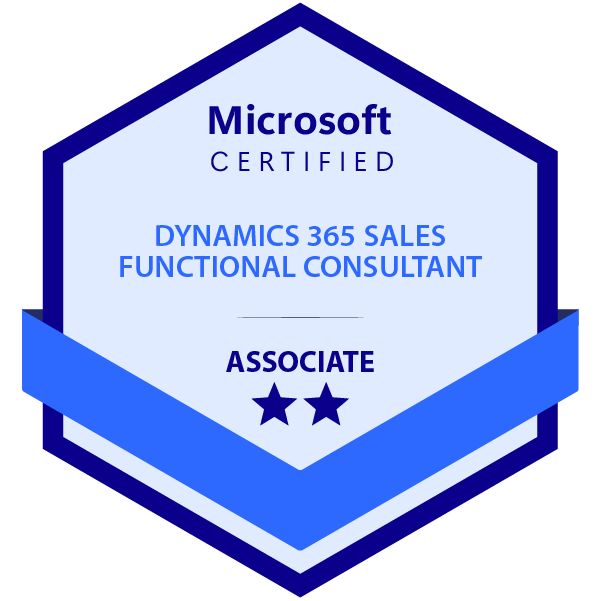
Summary of the Curriculum
Empower your organization’s sales teams with smarter, more connected selling using our Dynamics 365 Sales Functional Consultant Associate Course—designed to prepare you for the MB-210 certification and help you implement and customize Dynamics 365 Sales solutions that drive performance.
At Acquledge, this course provides hands-on training in configuring model-driven apps, managing leads and opportunities, and customizing sales processes to meet real business needs. You’ll learn how to build sales dashboards, manage the product catalog, set up pricing models, and automate engagement with tools like the Sales Accelerator, sequences, and Power BI insights.
Whether you’re a CRM consultant, business analyst, or sales operations professional, this course equips you with the knowledge to design effective sales solutions, improve pipeline visibility, and streamline the end-to-end sales lifecycle.
Enrollment Process
- Sign up on the platform and choose your preferred batch.
- Start your classes on the scheduled date .
- Get access to learning materials and project dashboards.
- Begin your training journey with expert-led sessions.
- Apply your learning through real-world case studies and projects,
Detailed Course Curriculum
Configure Dynamics 365 Sales (35–40%)
- Configure user interfaces
- Configure model-driven apps
- Create and configure forms and views
- Create email, Excel, and Word templates
- Configure the timeline control
- Understand Microsoft Dataverse security concepts
- Configure column mappings on table relationships
- Configure sales settings
- Configure sales territories and hierarchical sales territories
- Configure auto number settings for quotes, orders, and invoices
- Configure currencies and fiscal years
- Understand sales security roles and hierarchy security
- Manage sales literature
- Configure and utilize the assistant
- Configure the business card scanner control
- Enable the Kanban control
- Understand goal management
- Configure processes
- Configure duplicate detection rules
- Configure sales business process flows
- Import data using the Data Import wizard and export data to Excel
- Configure sales visualizations
- Implement Power BI apps for Sales
- Configure sales dashboards
- Understand options for sales reports
- Configure the opportunity pipeline view
- Configure sales engagement
- Configure and utilize the Sales accelerator
- Configure the workspace
- Create and manage sequences and segments
- Configure lead and opportunity assignment rules for routing
- Configure the Up Next widget
- Evaluate Sales licensing
- Compare Sales Professional and Enterprise configuration
- Describe Team member licensing use cases
- Understand the upgrade pathway from Sales Professional to Enterprise
- Manage Core Sales Features (30–35%)
- Manage leads and opportunities
- Manage orders and the product catalog
- Define products, families, and bundles
- Set up price lists and product properties
- Manage quotes, orders, and invoices
- Manage goals
- Define and track individual goals
- Use goal metrics
- Configure Additional Tools and Services (25–30%)
- Work with Dynamics 365 Sales Insights
- Integrate Microsoft 365 services with model-driven apps and Microsoft Dataverse
- Analyze Dynamics 365 Sales data
- Use Power BI and other analytics tools
- Create surveys with Dynamics 365 Customer Voice